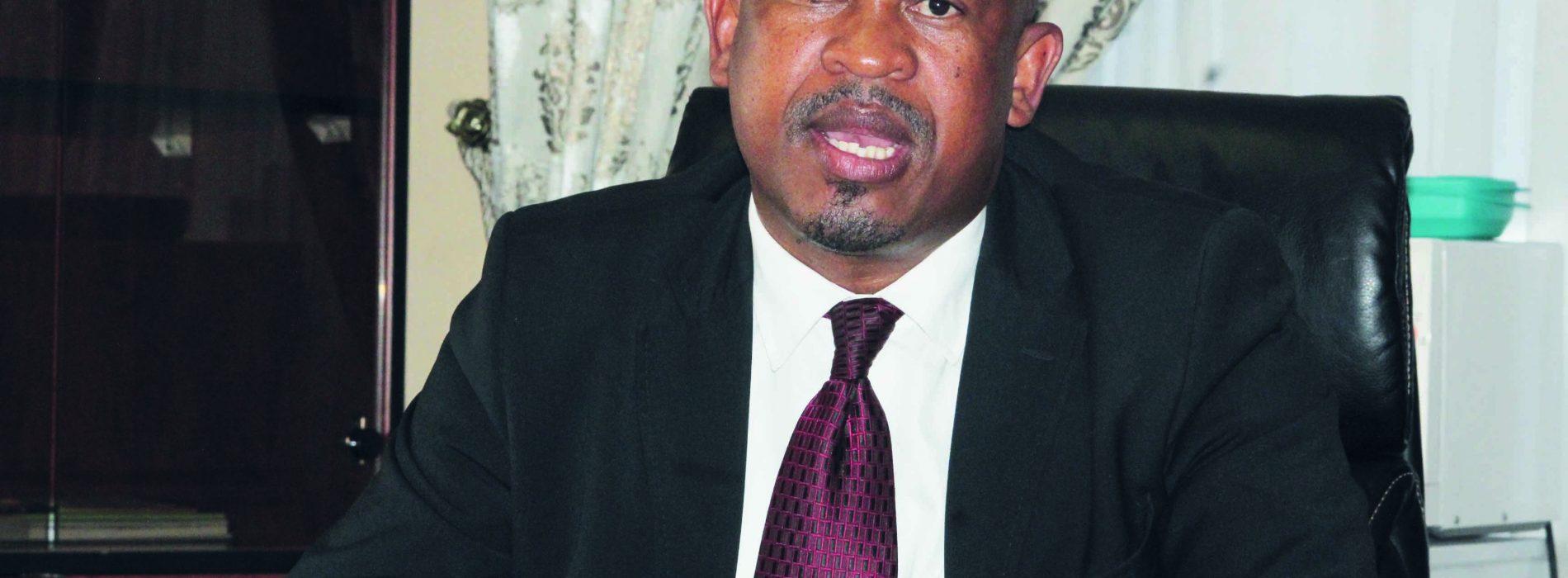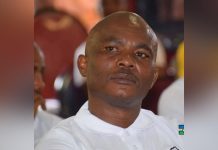Africa-Press – Lesotho. A crisis of expectations. This is what the coalition government headed by Prime Minister Thomas Thabane is battling to contain after a stormy 11 months in power. This is a government that was swept into power on the back of electoral promises to create jobs and fight endemic poverty.
The coalition government is now facing a reality check, says Tšepo Monethi, who is the Deputy President of the Senate and deputy secretary general of the Basotho National Party (BNP).
“Expectations were very high,” says Monethi.
“The people were expecting immediate changes. They voted for change and if the change is slow then it is natural that people get disappointed.
” Monethi however believes the coalition government, to which his BNP is a junior partner, is committed to fighting poverty and corruption to ensure better lives for Basotho.
“We really mean business when we say we want to eradicate poverty and fight corruption,” he says.
Monethi says the key to fighting poverty lies in undertaking massive infrastructural projects around the country. He wants to see big infrastructural projects which he says could unlock jobs for the unemployed.
“We want to build access roads around the country and ensure there is political stability in Lesotho,” he says. That is a huge call for a government that is going through financial turbulence due to falling Southern African Customs Union (SACU) revenues.
This is a country that has failed to feed itself for years and has relied on handouts from international relief agencies. But Monethi says this decline can be reversed. He appears to be banking on the “golden past” when his beloved BNP was still in charge in the 1970s and early 1980s.
Monethi remembers with fondness that golden era when Chief Leabua Jonathan was Prime Minister before he was sent packing through a bloodless military coup in January 1986.
“Our history as a government (back in the 1970s and early 1980s) speaks for itself,” he says.
“Years before South Africa introduced the RDP houses, we were the first to introduce small-scale houses for low earners in Mohalalitoe.
”
Monethi says South Africa implemented what Chief Leabua Jonathan did some 40 years earlier, a feat that shows the former BNP leader was a great visionary.
“The people are falling in love with the BNP again and they know we can still deliver if we are given a chance again,” he says.
He argues there is nothing wrong in trying to replicate successful programmes of the past such as housing projects. “If we are given a chance (to rule) we can replicate that past.
The needs of the poor remain the same. They want houses, roads, clean water, security, good health and good education. ”
Monethi says over the last few weeks, there has been a surge in interest from Basotho to join the party, thanks to the power of incumbency.
He says being part of the coalition government “helps a lot” as they are able to push their own agenda towards the growth of the party. Monethi says the BNP is a “tried and tested party” that remains relevant in the stormy waters of Lesotho politics.
Of the major parties that were there at independence in 1966, only the Basotho Congress Party (BCP) and the MFP are still operating but they are now a “mere shadow of their former selves”.
He attributes the party’s staying power to its solid “pro-poor” policies. He says the BNP government developed the agriculture sector by subsidizing the growing of crops and as a result the people fell in love with the party.
Monethi was elected deputy president of the Senate after last snap year’s elections which saw no single political party win an outright majority. His BNP party, the All Basotho Convention, the Reformed Congress of Lesotho (RCL) and the Alliance of Democrats (AD) then cobbled a coalition government with Thabane as Prime Minister.
He says charges that the Senate is a “toothless bulldog” are often peddled by people who have no appreciation of how a democratic society operates. “If you are serious about having the rule of law and executing proper Bills in a democratic dispensation, then you need checks and balances and the Senate plays that role,” he says while defending the need for a Senate.
He also argues that the majority of Senators are seen as individuals who are not pushing a clear political agenda. Lesotho’s Senate consists of 22 Principal Chiefs and 11 others who are appointed by His Majesty on the advice of the Prime Minister.
“The Lower House is a house of politicians who are basically pushing the agenda of the government of the day while chiefs are non-partisan and represent the nation holistically,” he says.
Monethi, who says he fell in love with politics through his interactions with his grandfather who was a staunch BNP cadre, blames politicians for Lesotho’s current political crises.
He says politicians are often in the habit of abusing the army for their own nefarious agendas. “They want to use the army to instill fear in opponents,” he says.
“That has been going on for years.
”
The result has been decades of political strife in Lesotho, he argues.
To fix this problem, Monethi wants to see “serious reforms and transformation within the military establishment”. “The army should be depoliticised,” he says.
“The politicians must stay away from the barracks and we must bring back the Defence Commission to handle all issues of promotions within the army.
”
The day-to-day running of the army must be left to the military, he says.
“We might have good laws but if we don’t have a positive attitude towards stability and peace we will never achieve that.
”
He however believes there is a genuine commitment across the political divide “to commit ourselves to long-lasting peace and stability” for once. He says even if one of the 30 political parties in Lesotho is wobbling due to internal strife, the reforms must be allowed to proceed.
Monethi says he would like to see His Majesty King Letsie III, who seems to be the glue that unifies Basotho, being “given more constitutional powers to mediate, lead and give direction on key national issues”.
At present King Letsie III is the titular head of government but retains very little authority on how Basotho are governed with the rest of the power concentrated in the hands of the executive.
He says the current Constitution strips the King of any genuine authority to meaningfully participate in the governance of the country, a situation he says must be changed.
Monethi says he is also hostile to any talk of a general amnesty for individuals who were accused of perpetrating human rights violations in the recent past.
He wants to see justice for the wronged. “When you forgive you must know what that person did to you because if you don’t really interrogate the past, it will come back and haunt you.
” He also wants a clear distinction between those who perpetrated criminal acts allegedly on behalf of the State and those who were involved in wrongdoing on the basis of a political cause.
“Those who committed criminal activities must be prosecuted and those who committed wrongs for political reasons must pour out their hearts and tell us what they did so that there is closure.
” Monethi says he grew up “hearing a lot about politics”. He would spend his school holidays in the village in Mapoteng, rearing cattle and going to the fields to plough and harvest.
“None of the people in the village would handle you with kid gloves. If it was time to wake up, you just had to wake up.
”
He says it is only now that he appreciates the value of such tough training in his life. Monethi’s breakthrough into national politics only came in 2003 when he was appointed the national secretary for youths in the BNP.
“I thought it was important to start having a bigger say in the decision-making processes of my political party. But going into the youth league was just a stepping stone to bigger things in the national politics.
”
Monethi became the chairperson of the BNP Youth League in 2007 and became a Member of Parliament (MP) in 2012 under the Proportional Representation (PR) system.
In 2016, Monethi was appointed the BNP deputy secretary general. He was elected deputy president of the Senate last year. He is married to ’Mahlalele Monethi and the two have two children.






